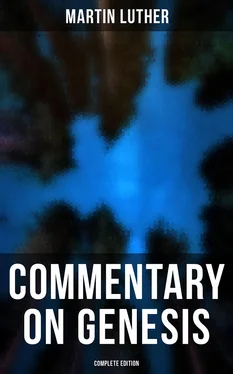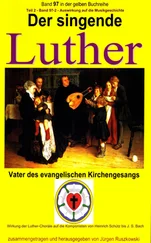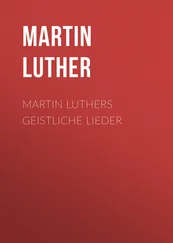Martin Luther - Commentary on Genesis (Complete Edition)
Здесь есть возможность читать онлайн «Martin Luther - Commentary on Genesis (Complete Edition)» — ознакомительный отрывок электронной книги совершенно бесплатно, а после прочтения отрывка купить полную версию. В некоторых случаях можно слушать аудио, скачать через торрент в формате fb2 и присутствует краткое содержание. Жанр: unrecognised, на английском языке. Описание произведения, (предисловие) а так же отзывы посетителей доступны на портале библиотеки ЛибКат.
- Название:Commentary on Genesis (Complete Edition)
- Автор:
- Жанр:
- Год:неизвестен
- ISBN:нет данных
- Рейтинг книги:4 / 5. Голосов: 1
-
Избранное:Добавить в избранное
- Отзывы:
-
Ваша оценка:
- 80
- 1
- 2
- 3
- 4
- 5
Commentary on Genesis (Complete Edition): краткое содержание, описание и аннотация
Предлагаем к чтению аннотацию, описание, краткое содержание или предисловие (зависит от того, что написал сам автор книги «Commentary on Genesis (Complete Edition)»). Если вы не нашли необходимую информацию о книге — напишите в комментариях, мы постараемся отыскать её.
Commentary on Genesis is the last work of Martin Luther, written during the last several years of his life. Luther's work follows the first volume of Psalms with critical and devotional remarks on the creation and on sin and the flood.
Commentary on Genesis (Complete Edition) — читать онлайн ознакомительный отрывок
Ниже представлен текст книги, разбитый по страницам. Система сохранения места последней прочитанной страницы, позволяет с удобством читать онлайн бесплатно книгу «Commentary on Genesis (Complete Edition)», без необходимости каждый раз заново искать на чём Вы остановились. Поставьте закладку, и сможете в любой момент перейти на страницу, на которой закончили чтение.
Интервал:
Закладка:
When at length the body has grown and the man has a sound reason and soul in a sound body, then first shines forth in all its brightness that life of intelligence found in no other earthly creature. By this faculty, leaning on the aid of the mathematical sciences, which no one can deny were indicated and taught from above, man mounts in his mind from earth to heaven, and leaving behind him the things below concerns himself about and inquires into heavenly things. Hogs do not do this, nor cows nor any other beasts of the earth, it is the employment of man alone. Man therefore is a being created of God with the design that at an appointed time he should leave the earth, dwell in heavenly mansions and live a life eternal. These great principles of man's creation form the reasons why he is able not only to speak and to judge, which are things pertaining to language and argument, but is capable also of acquiring any science whatever.
From this fourth day therefore begins to be manifested the peculiar glory of our race. Because God here forms his mind and purpose to create such a being as should be capable of understanding the motions of those heavenly bodies, which are created on this fourth day; and a being who should delight himself in their knowledge, as peculiarly and exclusively adapted to his nature. All these things therefore ought to call forth our thanksgiving and praise; while we reflect that we are the citizens of that heavenly country which we now behold, understand and wonder at, yet understand only as strangers and exiles, but which after this life we shall behold nearer and understand perfectly.
Hitherto therefore we have heard the divine historian speak of those creatures only, which are endowed with neither life nor sense; although some philosophers have spoken of the stars and the greater heavenly bodes, as if they were animate and rational. This I think has arisen from the motion of these bodies, which is rational and so certain that there is nothing like it in any other creatures. Hence some philosophers have affirmed that the heavenly creatures were composed of body and intellect, though their bodies were not material. Plato reasons thus in his "Timoeus."
All such opinions however are to be utterly exploded and our whole intellect is to be subjected to the Word of God and to what is there written. The Holy Scriptures plainly teach that God made all these things, that he might by them prepare for the man, whom he was about to create, a home and a hospitable reception; and that all these things are governed and preserved by the power of the same Word, by which they were originally created. Wherefore all things being at length prepared pertaining to the furniture of his home, the Scriptures next show us the manner in which man was "formed" and introduced into his possession to the end that we might be taught that the providence of God over us and for us is greater than all our own care and concern for ourselves can possibly be. These things are plainly taught us in the Scriptures. All other things not supported by the authority of the Scriptures are to be repudiated and rejected.
I have therefore thought it especially becoming and necessary to repeat here that admonition which I have frequently given, that we ought constantly to acquaint and familiarize ourselves with the phraseology of the Holy Spirit. For no one can successfully study any of the human arts unless he first correctly understands the idiom of the language in which its principles are described. For lawyers have their peculiar terms, unknown to the physician and the philosopher. In like manner, the latter have each a phraseology peculiar to themselves with which the professors of other arts have little or no acquaintance. Now one art ought not to perplex another. But every art ought to maintain its own course in its own way and to adopt its own peculiar terms.
Accordingly we find the Holy Spirit, to use a language and a phraseology peculiar to his own divine self, declaring that God created all things by his Word or by speaking them into being; "He spake and it was done"; that he wrought all things by his Word; and that all the works of God are certain words of God, certain things created by the uncreated word. As therefore the philosopher uses his own terms, so the Holy Ghost uses his. Hence when the astronomer speaks of his spheres, his cycles and his epicycles, he does so rightly, for it is lawful for him in the profession of his art to use such terms as may enable him the better to instruct his disciples. On the other hand the Holy Ghost will know nothing of such terms in the sacred Scriptures. Hence those Scriptures call the whole of that part of the creation which is above us, "The heaven," nor ought that term to be disapproved by the astronomer; for the astronomer and the Scripture both adopt, as I have said, terms peculiar to themselves.
It is in this manner that we are to understand the term "seasons" in the sacred text before us. For the term "season" with the philosopher and with the Hebrew has not the same signification. With the Jews the term "season" signifies, theologically, an appointed feast or festival; and also the intervals of days, which concur and conjoin to form the year, wherefore this term is everywhere rendered by the word "feast" or "festival" or "festivity"; except where it is used to signify a "tabernacle" or "tent."
I deemed it best to offer these admonitions concerning language and phraseology before we advance further, and I hope they will not be found useless or out of place, as showing the importance that every art should confine itself to its own language and terms; that no one art should condemn or deride another, but that each should rather aid the other and render mutual services. And this indeed the professors of all arts do, in order that the unity of the whole state may be preserved; which, as Aristotle says, "cannot be constituted of a physician and a physician; but must be formed of a physician and a husbandman."
Part V. God's Work on the Fifth Day
Table of Contents
I. V. 20. And God said, Let the waters swarm with swarms of living creatures, and let birds fly above the earth, etc., etc.
We see Moses retains invariably the same sacred phraseology, "And God said," etc. Hitherto he has been speaking of the superior creatures; the heaven with all its host of planets and stars, which God created out of water by the Word, and gave light unto it, just as we now see the air around us lucid, with a natural illumination.
Moses now proceeds to speak of new creatures also produced out of the waters; namely, of birds and fishes. He connects these two creatures in his narrative on account of their similarity of nature. For as the fish swims in the water, so does the bird swim as it were in the air. Though their flesh differs, yet they have the same origin. For the sacred text is here quite plain, that the birds when created out of the waters immediately flew into the air where they now live. Moses here retains moreover his uniform term in calling the whole region above us, "heaven."
And first it is worthy of admiration that, although the fishes and the birds were both created out of the same matter, the waters, yet as the bird cannot live in the water, neither can the fish exist, if brought into the air. Physicians rightly argue, when they affirm that the flesh of birds is more wholesome than that of fishes, even though the nature of birds is also aqueous; because they live in a more rarified element; for air is a purer element than water; the latter, in which the fish are generated and live, being constituted of the dregs as it were of the former. Philosophers however do not believe this identity of the nature of birds and of fishes. But the faith of the sacred Scriptures which is far above philosophy and far more certain, assures us that the nature of the fish and of the bird had the same origin.
Читать дальшеИнтервал:
Закладка:
Похожие книги на «Commentary on Genesis (Complete Edition)»
Представляем Вашему вниманию похожие книги на «Commentary on Genesis (Complete Edition)» списком для выбора. Мы отобрали схожую по названию и смыслу литературу в надежде предоставить читателям больше вариантов отыскать новые, интересные, ещё непрочитанные произведения.
Обсуждение, отзывы о книге «Commentary on Genesis (Complete Edition)» и просто собственные мнения читателей. Оставьте ваши комментарии, напишите, что Вы думаете о произведении, его смысле или главных героях. Укажите что конкретно понравилось, а что нет, и почему Вы так считаете.












